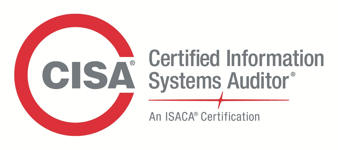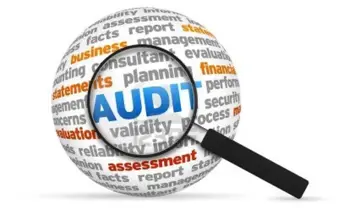CISA interview questions (2025): Essential guide for candidates and interviewers
You've invested years building your technical skills, sharpening your audit expertise and gaining hands-on experience. Now you're sitting across from a hiring manager who wants to know: are you the right CISA professional for their team?
Landing a role as a Certified Information Systems Auditor takes more than passing the exam. Organizations seeking CISA-certified professionals want to see how you think, problem-solve and handle real-world audit scenarios. Whether you're interviewing for an information security analyst, IT compliance analyst, information system auditor or security architect position, preparation makes all the difference.
This guide walks you through the most common CISA job interview questions and provides strategies for delivering strong, confident answers that showcase your expertise.

Earn your CISA, guaranteed!
Get your CISA live online or on-site, backed with an Exam Pass Guarantee!
Understanding CISA certification
The CISA exam is a rigorous test requiring five years of experience. The exam consists of 150 multiple-choice questions covering five job practice domains, and you'll have four hours to complete it. This certification opens doors to roles in information systems auditing, security architecture, compliance analysis and risk management.
The CISA exam received an important update in August 2024, with adjusted weightings across all five CISA domains to reflect current industry practices and emerging technologies. Understanding these domains helps you prepare for both the exam and subsequent IT audit interviews.
Once you've earned your CISA certification, the next step is acing the interview. Here are key questions hiring managers ask and how to approach your answers.
Top CISA interview questions for 2025
Hiring managers use a mix of straightforward technical questions and complex scenario-based inquiries to assess your knowledge. Be ready for both.
1. What is an RFC?
A request for change (RFC) is a formal process that authorizes modifications to a system. It maintains a detailed log of all changes, which is critical for audit trails. As an information systems auditor, you need to understand when to approve an RFC and how to assess the risks associated with proposed changes.
2. What is change management?
Change management provides a structured framework for implementing organizational changes. For IT auditors, this means identifying potential risks before changes go live, ensuring proper documentation and verifying that changes align with security policies and compliance requirements.
3. What is the purpose of a CISA audit trail?
A CISA audit trail creates a chronological record of system activities. It's essential for monitoring system access, investigating security incidents, maintaining compliance with regulations, ensuring accountability and resolving technical problems. During interviews, be ready to discuss how you've used audit trails in previous roles.
4. What is the standard protocol of the internet?
Most internal networks and the internet use the TCP/IP protocol. This basic networking question tests your foundational technical knowledge.
5. How do you verify information system controls within an audit?
Explain that you use a combination of control testing, stakeholder interviews and thorough documentation reviews. Assess different control types, including access controls, encryption mechanisms and monitoring tools. Emphasize that all controls should align with the organization's security policies and relevant regulatory requirements like SOX, HIPAA or GDPR.

Earn your CISA, guaranteed!
Get your CISA live online or on-site, backed with an Exam Pass Guarantee!
Technical questions and answers
These information systems auditor interview questions dig deeper into your technical expertise. Hiring managers want to see that you stay current with emerging technologies and can apply your knowledge to real-world situations.
6. What are some pitfalls of virtualized systems?
Virtualized systems create multiple independent instances on a single physical computer, allowing organizations to maximize resource utilization. However, they introduce challenges, including performance bottlenecks when resources are overcommitted, security concerns related to virtual machine isolation and increased complexity in managing virtual environments. A strong answer demonstrates you understand both the benefits and risks of virtualization.
7. What is the disadvantage of using long asymmetric encryption keys?
While longer asymmetric encryption keys provide stronger security, they also create performance trade-offs. They slow down encryption and decryption processes, increase computational overhead and can impact system performance, especially on older hardware or high-volume systems.
8. What components do you focus on in an IT audit, and why?
Discuss how you evaluate the overall governance framework, organizational policies, IT infrastructure and alignment between IT systems and business objectives. Explain that your audit approach ensures technology supports business goals while maintaining security and compliance.
9. How do you approach access controls in an IT audit?
This is your opportunity to showcase your systematic approach. Walk through how you examine user account provisioning processes, role-based access controls, password policies, multi-factor authentication implementation and the principle of least privilege. Mention specific frameworks you follow, such as NIST or ISO 27001 standards.
Risk management and compliance questions
Staying current with evolving regulations and industry standards is critical for any CISA professional. These cybersecurity audit interview questions assess your risk assessment capabilities and compliance knowledge.
10. What is the best response when you find a flaw in the system during an audit?
Clarify that your role as an auditor is to identify and document the flaw, not to fix it directly. You document the finding in your audit report, assess its severity and potential impact, provide clear recommendations for remediation and submit everything to system owners for action. This demonstrates you understand professional boundaries and audit ethics.
11. What are some ways companies can lose data?
Data loss occurs through multiple vectors. Cyberattacks and malware represent major threats to enterprise organizations. Other common causes include insider threats from disgruntled employees, accidental data exposure, physical theft of employee devices, ransomware attacks and inadequate backup procedures. Strong candidates mention both intentional and unintentional data loss scenarios.
12. How do you stay current with compliance requirements and regulatory changes?
Hiring managers want to see your commitment to continuous learning. Mention specific resources you use: industry publications, ISACA resources, relevant certifications you're pursuing, professional conferences you attend and communities you participate in. Explain how you integrate proactive risk assessment into your audit strategy and adapt to new compliance requirements like emerging data privacy laws.

Earn your CISA, guaranteed!
Get your CISA live online or on-site, backed with an Exam Pass Guarantee!
Real-world scenarios and case studies
Scenario-based IT auditing interview questions reveal how you think under pressure. Prepare specific examples from your experience and be ready to walk interviewers through your problem-solving process.
13. What happens when a change damages a system or doesn't roll out as planned?
As a CISA professional, you're responsible for calling out the need for a rollback and ensuring a documented process exists for failed deployments. Share a real-world example where a deployment didn't go as planned. Describe the issue, how you identified it, the rollback procedure you followed and lessons learned that improved future change management processes.
14. You're an auditor evaluating the network of a company that provides wireless access for a fee, requiring them to process financial data. The company's wireless network connection has implemented SSL and WTLS. What is one of your top concerns?
Explain that the wireless application protocol (WAP) gateway represents a significant vulnerability. Data is decrypted at the gateway before re-encryption, creating a potential exposure point where attackers could compromise sensitive financial data. This demonstrates your understanding of wireless security architecture and payment card industry compliance requirements.
15. Explain how you utilized CISA principles during a data breach or cyberattack.
This question assesses your incident response knowledge and practical application of CISA principles. Describe how you conducted a thorough forensic investigation to identify the breach source and scope, implemented enhanced access controls, activated disaster recovery systems and worked with stakeholders to contain and mitigate the attack. Include specific results: how quickly the breach was contained, what remediation measures you recommended and how the organization improved its security posture afterward.
Soft skills and behavioral questions
Technical expertise matters, but soft skills often determine success in information systems auditor roles. CISA professionals need strong communication abilities, teamwork skills and leadership qualities.
16. Describe a time when you had to communicate negative audit findings.
Delivering bad news is part of the auditor's job. Explain your approach: how you framed findings constructively, showed empathy toward the teams involved and focused on solutions rather than blame. Discuss how you communicated proactively with stakeholders about risks and worked collaboratively to develop remediation plans. Strong answers demonstrate emotional intelligence and professional maturity.
17. Describe a time you worked collaboratively with other teams during an IT audit. How did it go?
Use a specific example that highlights your ability to work cross-functionally. Describe how you explained complex technical concepts to non-technical stakeholders, built trust with teams unfamiliar with audit processes and achieved project goals while strengthening interdepartmental relationships. Mention any process improvements that resulted from the collaboration.
`8. Describe a time you hit an unexpected challenge during an audit.
Hiring managers want to see that you stay calm under pressure. Share a specific challenge you encountered, your analytical approach to understanding the problem, how you documented the issue and what solution you recommended. Emphasize adaptability, critical thinking and professional composure.

Get your guide to the top-paying certifications
With more than 448,000 U.S. cybersecurity job openings annually, get answers to all your cybersecurity salary questions with our free ebook!
Preparing for the CISA interview
Just as you studied extensively for the CISA certification exam, you should prepare thoroughly for CISA job interviews. Make your certification prominent on your resume — it's a valuable differentiator that demonstrates your commitment to the profession.
Review CISA exam materials and question banks to refresh your knowledge of key concepts. Prepare real-world examples for behavioral questions so you can provide concrete evidence of your skills. Practice articulating your thought process for scenario-based questions. Research the organization and understand their industry, compliance requirements and security challenges.
Keep in mind that CISA-certified professionals are highly valued in the job market and often command competitive salaries (get our free cybersecurity salary guide for more information). Organizations have high expectations during the interview process, so thorough preparation is essential.
Career path and growth post-CISA certification
The CISA certification is a mid-level professional credential that significantly enhances your career prospects. Many security professionals with CISA certification advance into specialized areas like cloud security auditing, privacy compliance or risk management. Others move into senior or managerial positions such as IT audit manager, compliance director or chief information security officer.
A CISA certification adds substantial value to your resume, especially for related related to information systems auditing. If you're preparing for a CISA interview, you've already demonstrated significant dedication by passing the challenging certification exam. Now it's time to showcase that expertise to your future employer.
For more information on the CISA certification, check out the five-day CISA Boot Camp or download our free cybersecurity certification roadmap.







